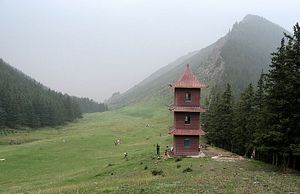While Inner Mongolia rarely experiences the crackdowns or repression of China’s restive western regions, there are those who believe the area, also known as Southern Mongolia to certain human rights groups, suffers greatly under the Chinese Communist Party. For the most part, Inner Mongolia is one of the most serene regions in China, but there are occasionally signs of unrest, violence, and ethnic tension. Earlier this month, 17 Inner Mongolian petitioners were “expelled” from Beijing to prevent their protests over their a lost land rights dispute, just one of many cases in Inner Mongolia of progress taking the place of tradition — an issue China and the rest of the world face on a daily basis. Other than that worry, there are issues of environmentalism and even some remaining colonial resentment. Enghebatu Togochog, director of the U.S.-based human rights group Southern Mongolian Human Rights Information Center, agreed to a short interview with The Diplomat to discuss some of the problems he believes face this region.
What specific human rights problems does Southern (Inner) Mongolia face today?
Enghebatu Togochog: All forms of human rights violations are taking place in Southern Mongolia. Among many issues, arbitrary arrests and extrajudicial detention, violation of Mongolian herders’ right to land and right to maintain their traditional way of life, suppression of freedom of speech, press and assembly are particularly a concern in Southern Mongolia.
Concerning the matter of Chinese migration into Southern (Inner) Mongolia, do you think this could lead to violence or troubles in the region?
Enghebatu Togochog: Yes, Chinese migration has always been, is still being, and will continue to be the root cause of all sorts of violence and human rights violations in Southern Mongolia. The very foundation of the Chinese colonial regime in Southern Mongolia is based on and supported by Chinese migration. The genocide and large-scale massacres against Southern Mongolians during the 1960s and 1970s were carried out by the Chinese Government and its Chinese settlers in Southern Mongolia; land disputes between indigenous Mongolians and Chinese settlers are unilaterally caused by Chinese farmers’ and miners’ illegal land grabs backed by the Chinese authorities. Environmental destruction in Southern Mongolia is caused by nothing but Chinese
immigrants’ unsustainable farming practices and unscrupulous mining activities.
Is the Communist Party helpful in managing the changes? What do you think they can do to better address concerns of the Southern (Inner) Mongolian people?
Enghebatu Togochog: The Southern Mongolians completely lost faith with the Communist Party, which has been the single political actor responsible for designing, implementing and defending China’s colonial policy in Southern Mongolia. As the main source of all problems in China and Southern Mongolia, the Chinese Communist [Party] brings no positive change, but only worsens the situation.
Herders from Urad Middle Banner recently petitioned in Beijing and were expelled for their trouble. Are their worries common to the rural populace?
Enghebatu Togochog: The case of the Urad Middle Banner Mongolian herders is not an isolated incident, but it is only the tip of iceberg. Hundreds of similar incidents are happening across Southern Mongolia, almost on a daily basis.
What does your organization hope to accomplish in Southern Mongolia?
Enghebatu Togochog: Our organization is dedicated to promoting and protecting the human rights of the Mongolian people in Southern Mongolia. The main work of our organization is to raise awareness of Southern Mongolian issues in the international community; at the same time, we inform the Southern Mongolians of what is happening in the free world and how people around the world are fighting for their freedoms. The ultimate goal of our organization is to empower the Southern Mongolians and to create an environment in which they will be able to decide their own political future freely.

































